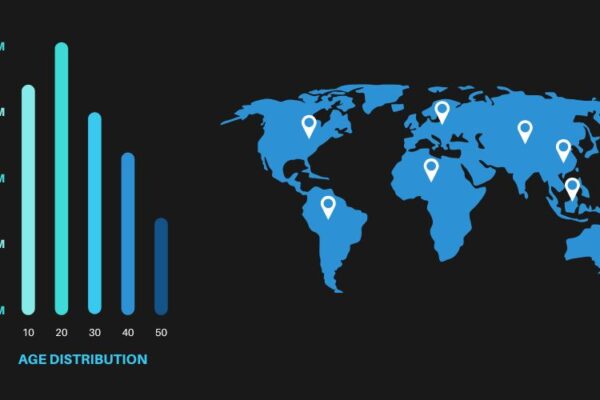Data quality, governance and analytics have taken center stage across industries with the emergence of artificial intelligence-led enhancements to the processes that reduce human intervention and curtail error rates to the minimum. Companies sitting on unstructured data could be on the cusp of unlocking hidden value through an AI-led approach and the pharma and healthcare industry could be among those that could rake in the maximum impact. A report from Global Data indicates a renewed spike in healthcare sector dealmaking around AI, starting from the second quarter of 2021 right through to the last quarter of 2022 and once again over two successive quarters of 2023 starting April (see graph).
The disruption created by GenAI following the ChatGPT launch in November 2022 resulted in several technology companies developing use cases for collecting, cleaning and organizing data that previously contained impenetrable information. This trend also came up in the Global Data report which notes that AI accounted for nine deals in the pharma and healthcare sector during the third quarter of 2023. That this wasn’t a sudden trend is evident from the fact that AI-led deal activity in the last quarter of 2022 stood at $456.7 million. Overall healthcare M&A activity remained on a high during 2022, though it didn’t match the record-breaking levels of 2021. In fact, close on the heels of two blockbuster pharma deals in 2023 – Merck’s $10.8 billion acquisition of Prometheus Biosciences and GSK’s $2 billion purchase of Bellus Health – Moody’s Investor Services reported that M&A activity could remain high over the next 12 to 18 months.
The market expects AI-led tech to be a differentiator
The global healthcare sector has witnessed unprecedented transformation, largely driven by demographic shifts and evolving patent needs. In addition, the technology advancements in the industry have also added to the growth with several major trends poised to shape the future, especially with regard to technology innovations. Some of these include:
- Healthcare businesses are increasingly seeking technology partners to develop AI tools that can enhance predictive capabilities, radio imaging and help in activities such as sleep monitoring and other overall wellness metrics.
- Another use case coming to the fore involves the ability of AI to optimize administrative functions and care delivery. Experts believe it would bring both financial and other benefits such as improved quality of care, enhanced patient experience and clinical satisfaction. In addition, it could help healthcare providers through optimization of care quality, claims and provider relationship management.
- The industry could also benefit from predictive forecasting of patient volumes that could help adjust staffing and resourcing needs. Data could also be used to identify high-impact patterns and trends in health related issues.
The above points prove that AI could definitely play a significant role in improving the quality of deals as well as the profitability of the combined entity. A market report from Precedence Research claims that the global AI in healthcare market, estimated at $15.1 billion could spurt to around $187.95 billion by 2030, with a CAGR of 37% during the period.
While the growing need for reducing healthcare costs without compromising on the quality of patient care is a key growth driver for adoption of digital technologies, there are a few other factors that need to be considered. For example, the surge in chronic diseases and the growing elderly population has resulted in higher hospital occupancy that generates massive volumes of patient health data. Through an AI-led approach to analyzing digital health records, the industry could add focus to the personalized medicines space. Moreover, the integration of AI and machine learning to healthcare systems can shift the focus to preventive healthcare through early diagnosis and customized care.
Market drivers that can boost AI in healthcare
Before analyzing specific use cases in the quality of healthcare, let’s look at how AI can make an instant impact by streamlining administrative processes. Given the growing pressures around managing margins, staff recruitment and retention, the industry could significantly reduce staff roles in documentation, pre-op workflows and insurance claims. A recent report from Deloitte notes that hospitals in the US are using AI to review patient records and medical policies to address insurance-related matters that could potentially save millions of dollars. It suggests that over 60% of the claims were recoverable but due to errors and limited hospital resources, only 0.2% of the in-network claims were appealed that resulted in massive write-offs.
If AI has multiple use cases in the healthcare administration, it also can make an impact with the caregiving part of the business. Recent reports about Finland’s much-hyped healthcare system overhaul has caught the attention of the industry due to the digital-first approach it has adopted. As part of this effort, the country hopes to get 80% of its citizens to use digital identification that directly connects with their health records. India too is moving swiftly on a similar journey through its Ayushman Bharat scheme where cardholders get access to quality healthcare across the country. Here are some of the key market drivers that could hasten the journey of AI adoption in healthcare…
- Remote patient monitoring systems: An AI-enabled system allows continuous monitoring of patients, providing real-time insights to the industry. Such an innovation generates better care customization and optimization of treatment. AI can be used to analyze medical data such as X-rays, CT scans and MRIs remotely, which also helps the spread of telemedicine to the remotest corners. Earlier this year, Zephyr, a company building AI solutions and KangarooHealth announced a tie-up to deliver such stuff.
- Enhanced diagnostics: Going forward, AI algorithms would be used more commonly to analyze medical data such as patient records and genetic information, allowing doctors to diagnose conditions faster and more accurately. This predictive care capability would allow pattern detection that could serve as indicators of ailments.
- Improved monitoring processes: In addition to the obvious benefits to the healthcare industry, AI use-cases are enveloping the retail ecosystem too. Patients can monitor their overall wellness using smartphones and wearable devices. In fact, a US grocery chain now operates over 200 clinics that use customer data to monitor wellness. These could come in handy to provide low-cost treatment across larger volumes, while also spreading beyond the urban areas.
- Blurring the lines: As more and more use-cases for AI emerge in healthcare, it could end up blurring the lines between humans and technology via augmented reality, smart devices and wearables. As more investments seek secure data environments, the concerns around data security would also drop away.
| The following can be used to create an infographic: Intelligent diagnosis: AI-enabled solutions could support clinicians in making precise diagnoses using inputs from in-vitro diagnostics, imaging, EHRs, patient conversations, biometrics, images, sensors, wearables, and genomics.Personalized and adaptive care plans: AI could interpret biomarker data from smart devices and wearables to generate treatment plans such as sleep analysis, dietary suggestions, and even AI-generated music for stress management. Population-scale healthcare: AI could analyze large datasets and recognize patterns crucial to spotting health trends within a population. For example, by reviewing genomic, socioeconomic, and EHR data, AI could identify risk factors and predictors of diseases, such as cervical cancer. |
Now, industry needs to beat the trust challenge
While there is hardly a doubt that healthcare can benefit substantially from AI-led use cases, its true transformational potential in the industry could depend on the level of trust and acceptance that providers, practitioners and consumers show. In other words, earning the patients’ trust becomes the cornerstone around which the AI-led healthcare edifice of the future needs to be constructed. Towards this end, the industry needs to focus on data transparency that allows users to appreciate the reasons for collecting information, explainable algorithms that shed light on how decisions are made to all stakeholders and a reliable AI that assists people to better understand how accurate data saves time and money while holding it accountable for setting and meeting pre-defined standards. Here’s how this can pan out…
- Safety is the prime concern as AI systems must not put human life and health at risk. AI models could potentially become unsafe if the oversight around fairness is compromised or some accountability or bias turns up.
- Transparency comes next whereby AI systems are auditable with individuals having access to their data in the system with all sources of information therein also being immediately traceable.
- Interpretation of the data so collected and parsed through AI systems should clearly help doctors understand how the data is put together and what functions the algorithms do to generate actionable insights. In other words, there’s no scope for opacity.
- Fairness and equitable distribution is probably the most crucial outcome of AI use in the healthcare business. No way should an AI model increase a specific group’s risk towards experiencing bias or adverse outcomes.
- Regulatory requirements are changing rapidly as governments are working to establish some norms around the use of AI across industry. Healthcare companies engaging with tech need to be on top of this developing scenario as future success or failure may well depend on what’s approved and what’s not.
In conclusion…
Recent M&A trends indicate quite clearly that healthcare companies that join hands with technology providers to innovate are likely to generate better value from their merged entities. In the coming years, AI technologies would help companies add new or complementary capabilities, expand customer and user bases, enable companies to extract new insights from existing data and allow access to new data sources. In fact, this trend became obvious from Microsoft’s 2022 acquisition of Nuance where it aimed to double the addressable market among healthcare providers with a revenue opportunity of $500 billion.
What remains to be seen is how technology companies leverage the data available with healthcare businesses to expand their horizons and how medical services use the said data to improve patient care. From healthcare systems seeking better data analytics to better serve patients to medical device companies looking to enhance their tech play to deliver the right outcomes at the right time for pharma and healthcare – the journey is just beginning.


